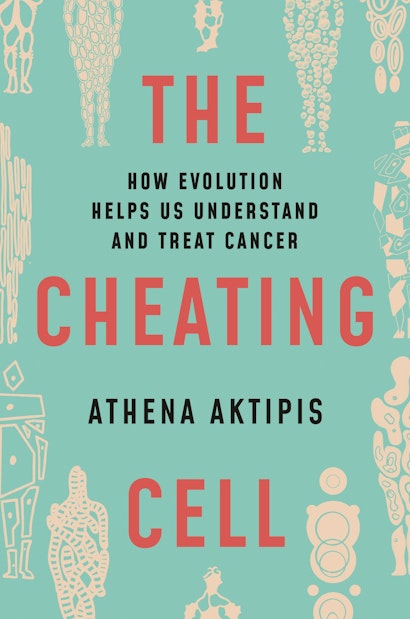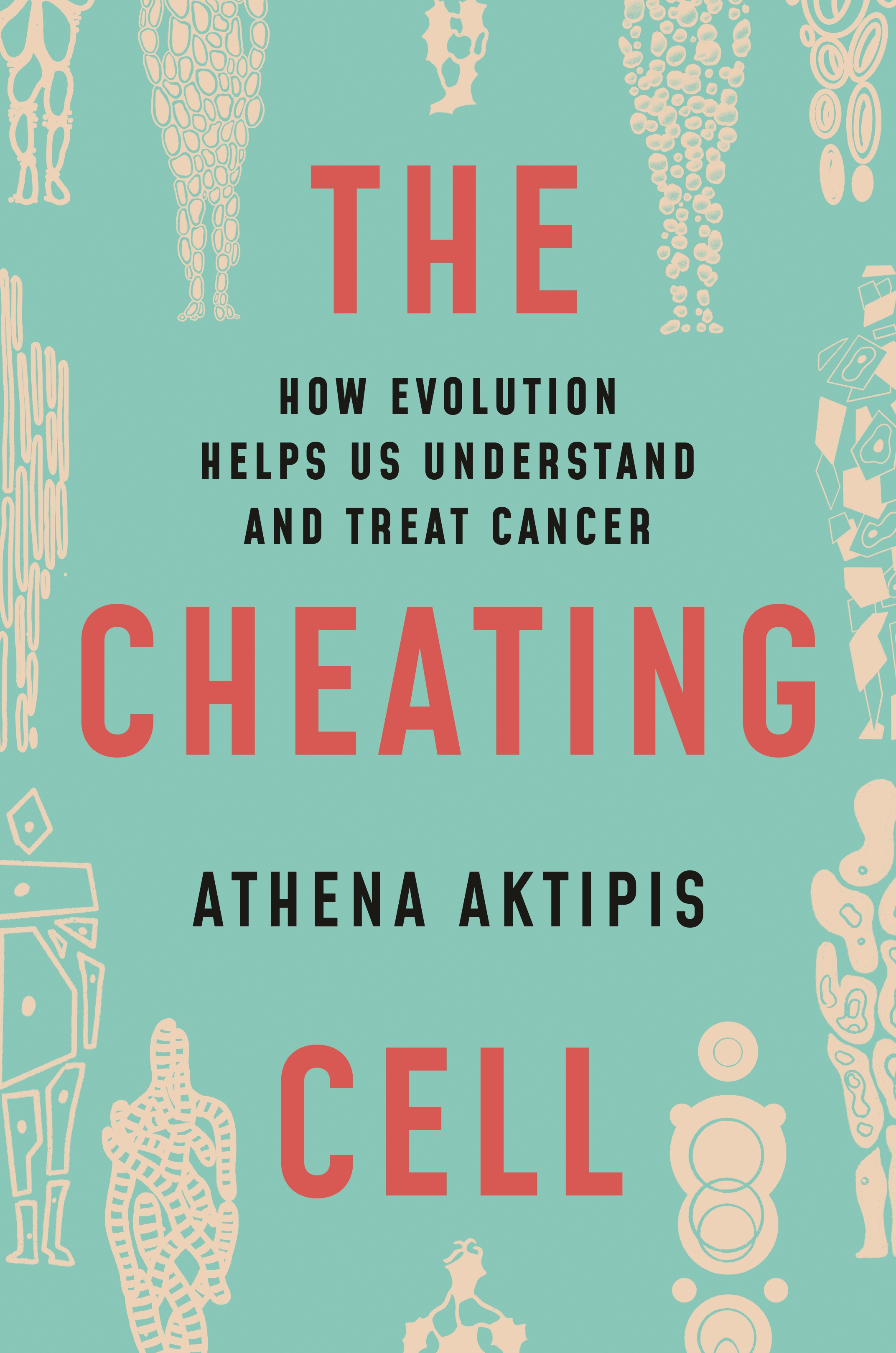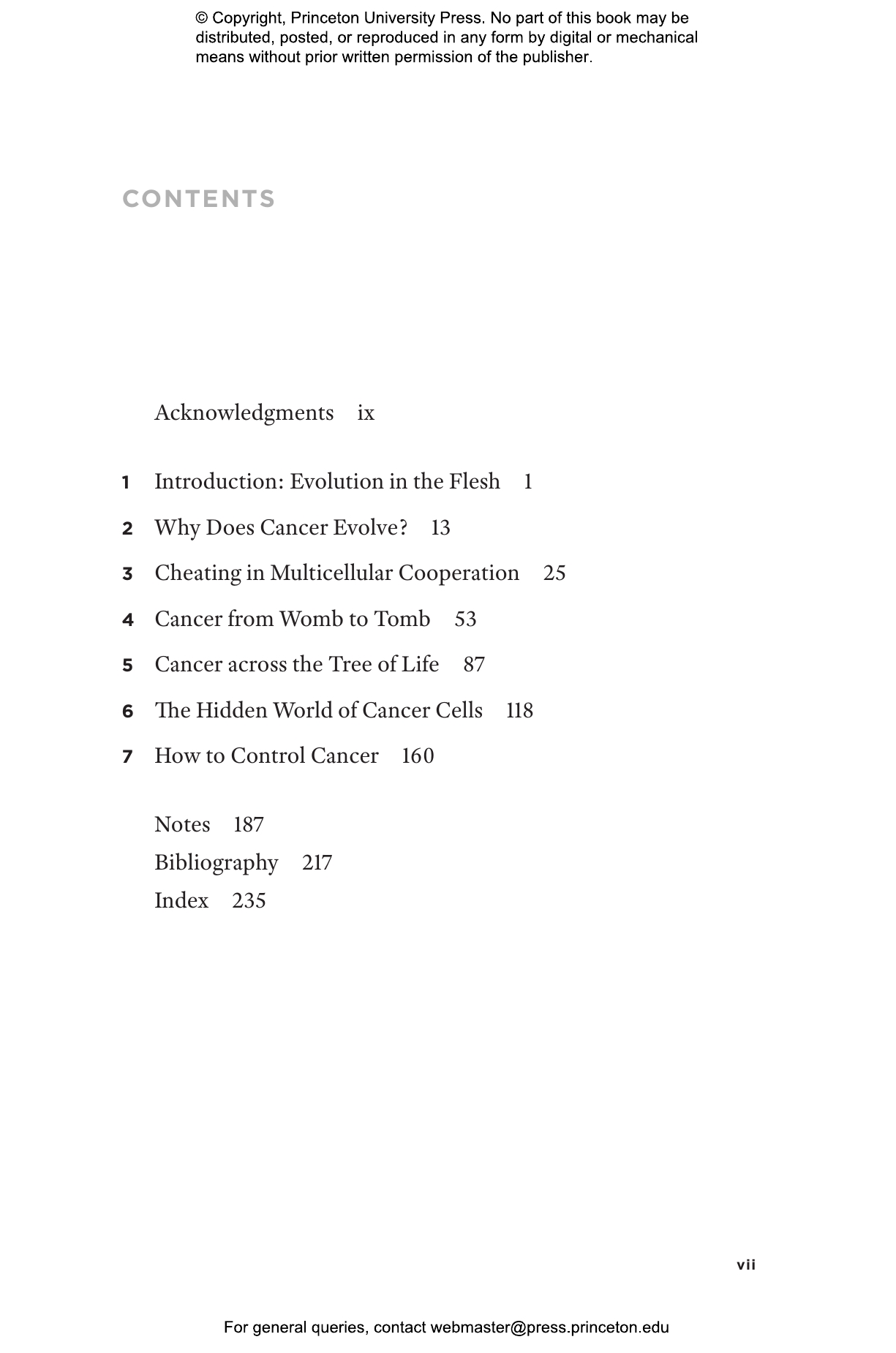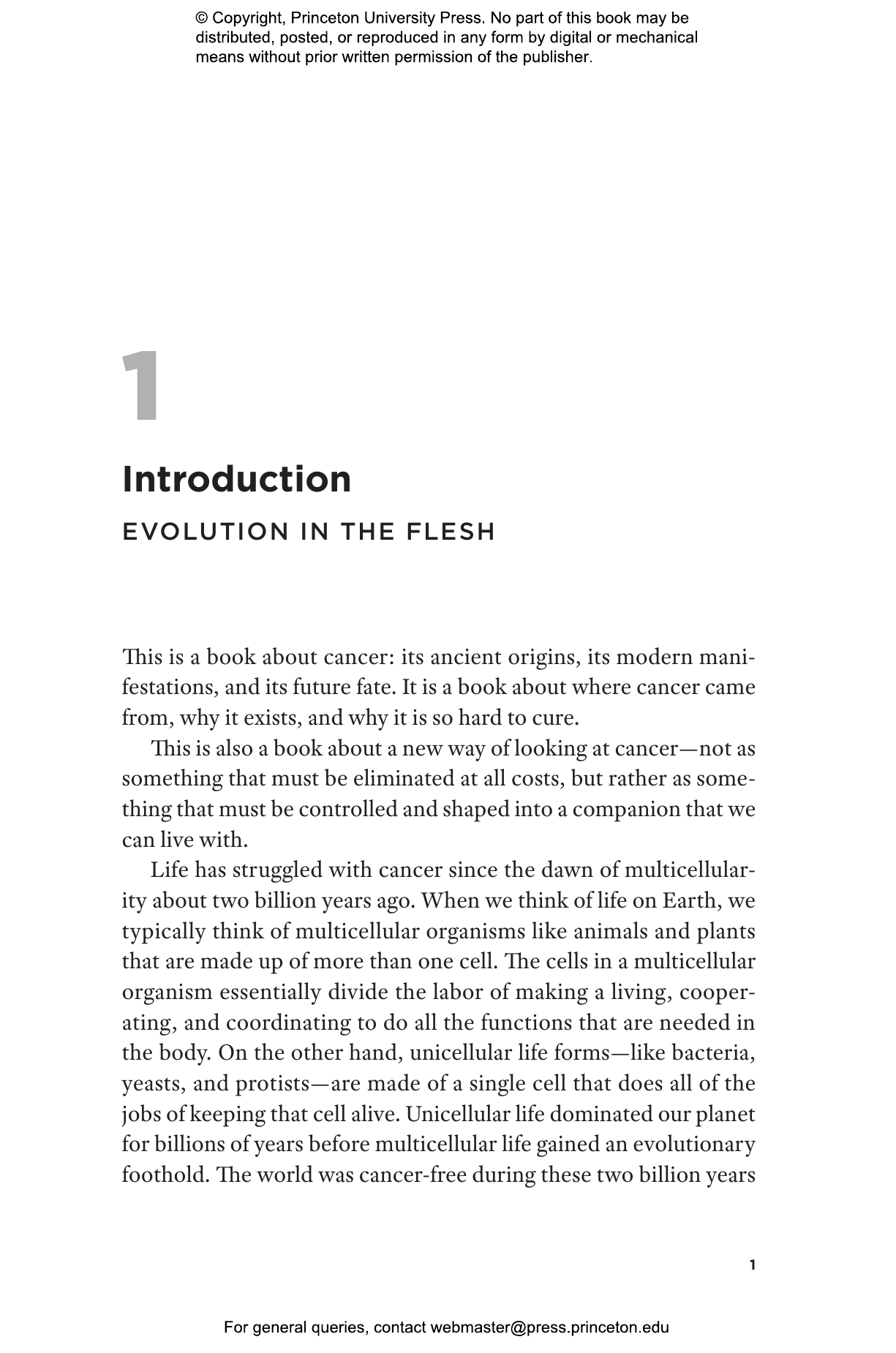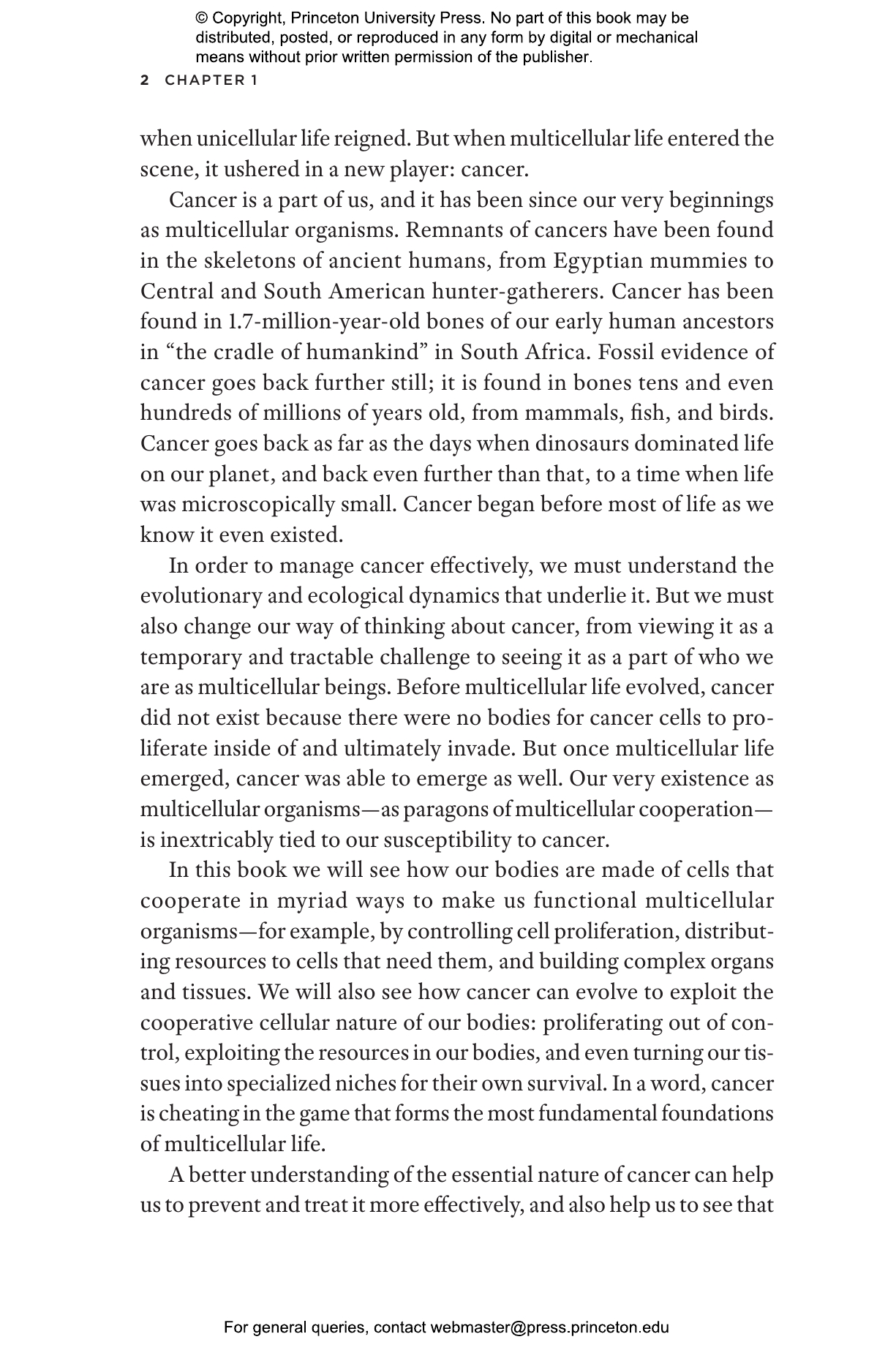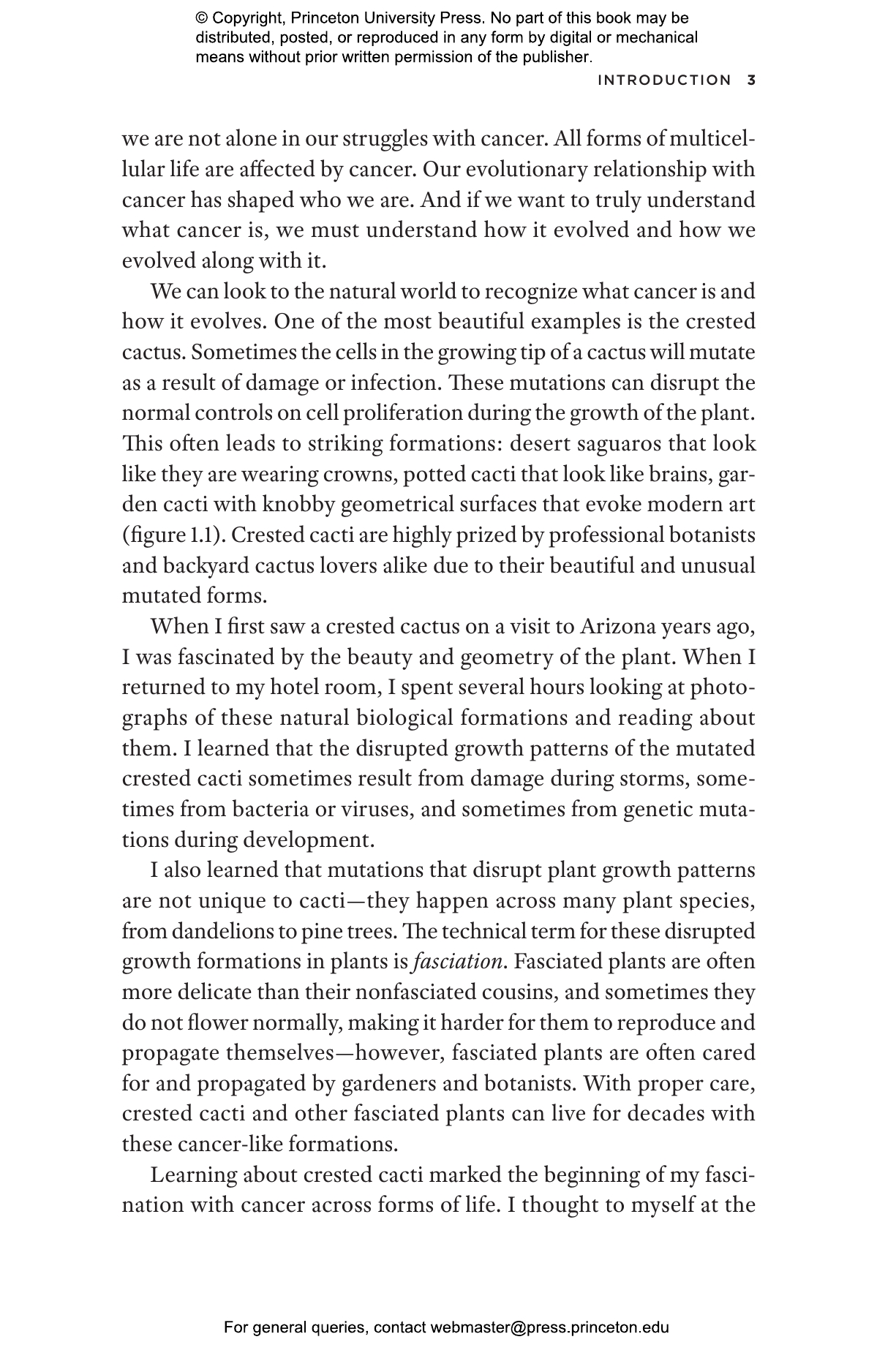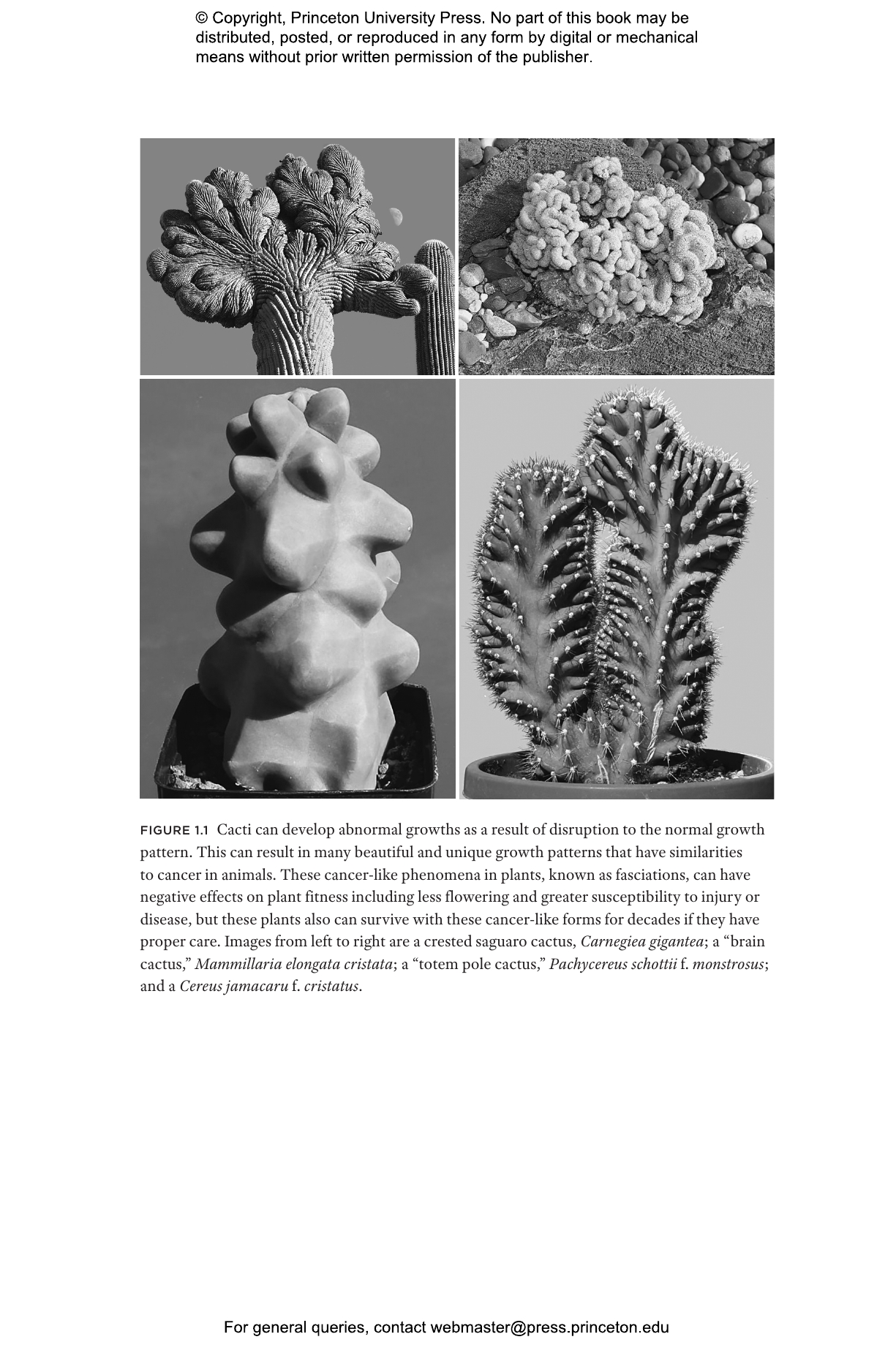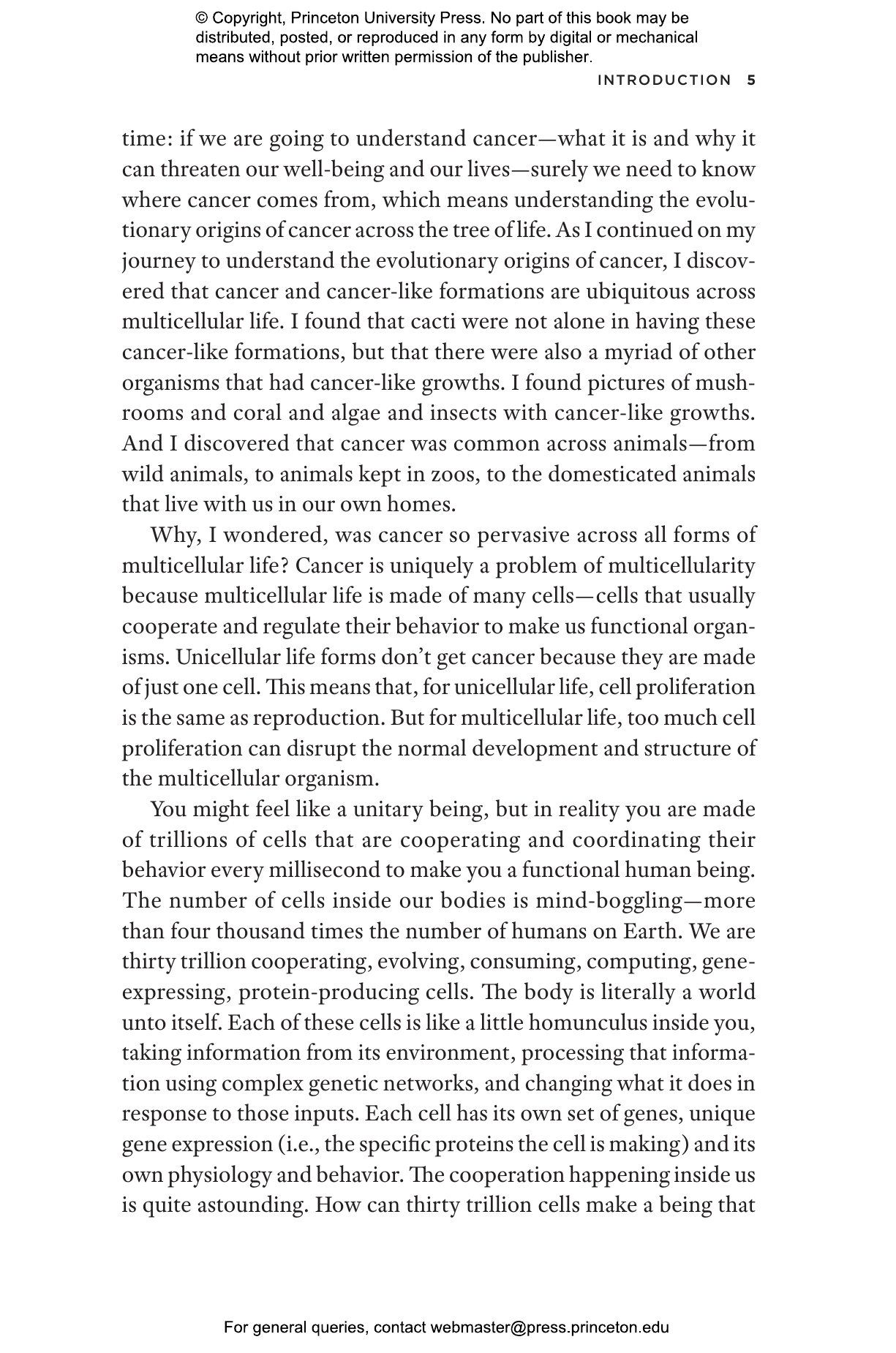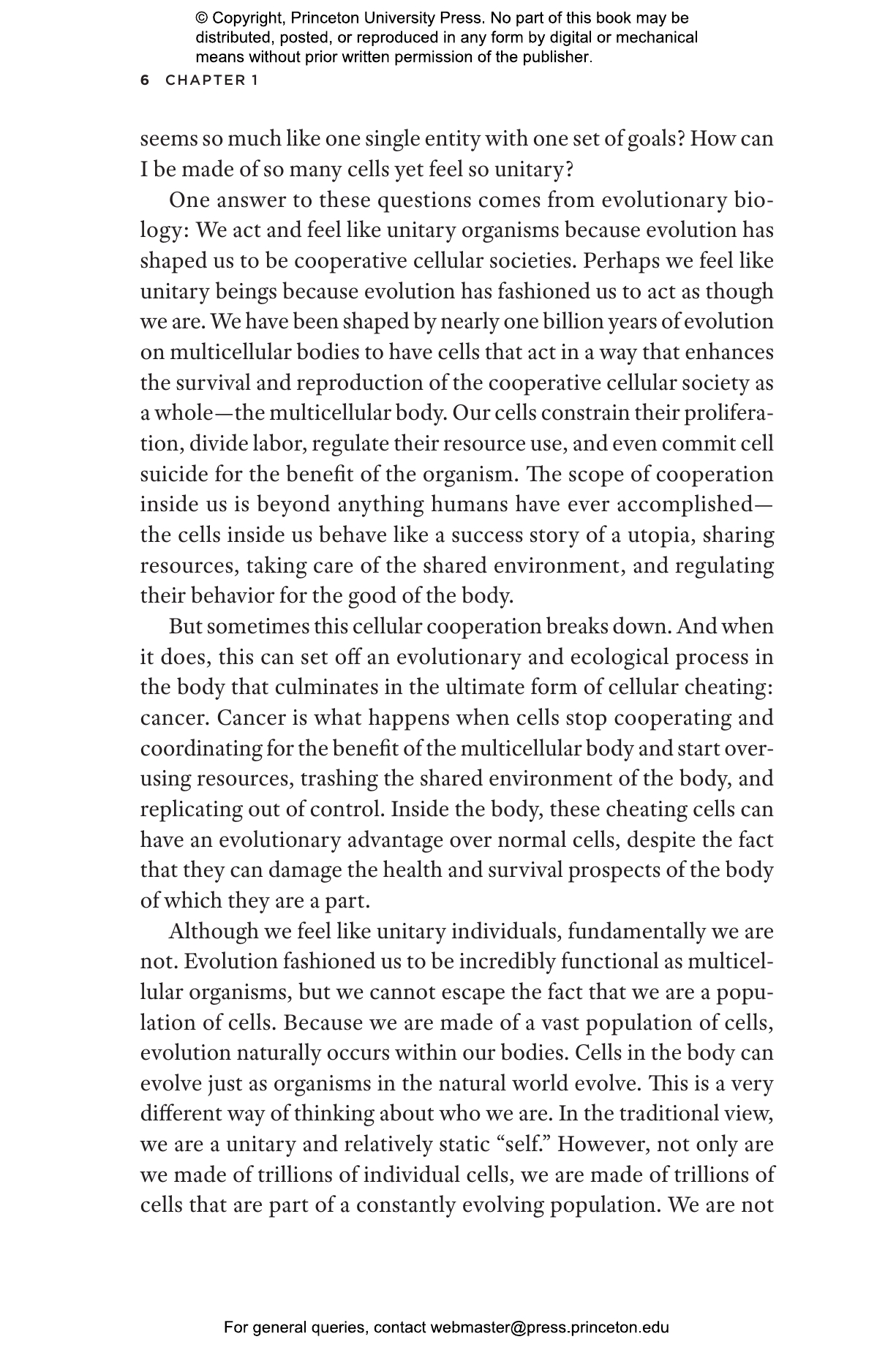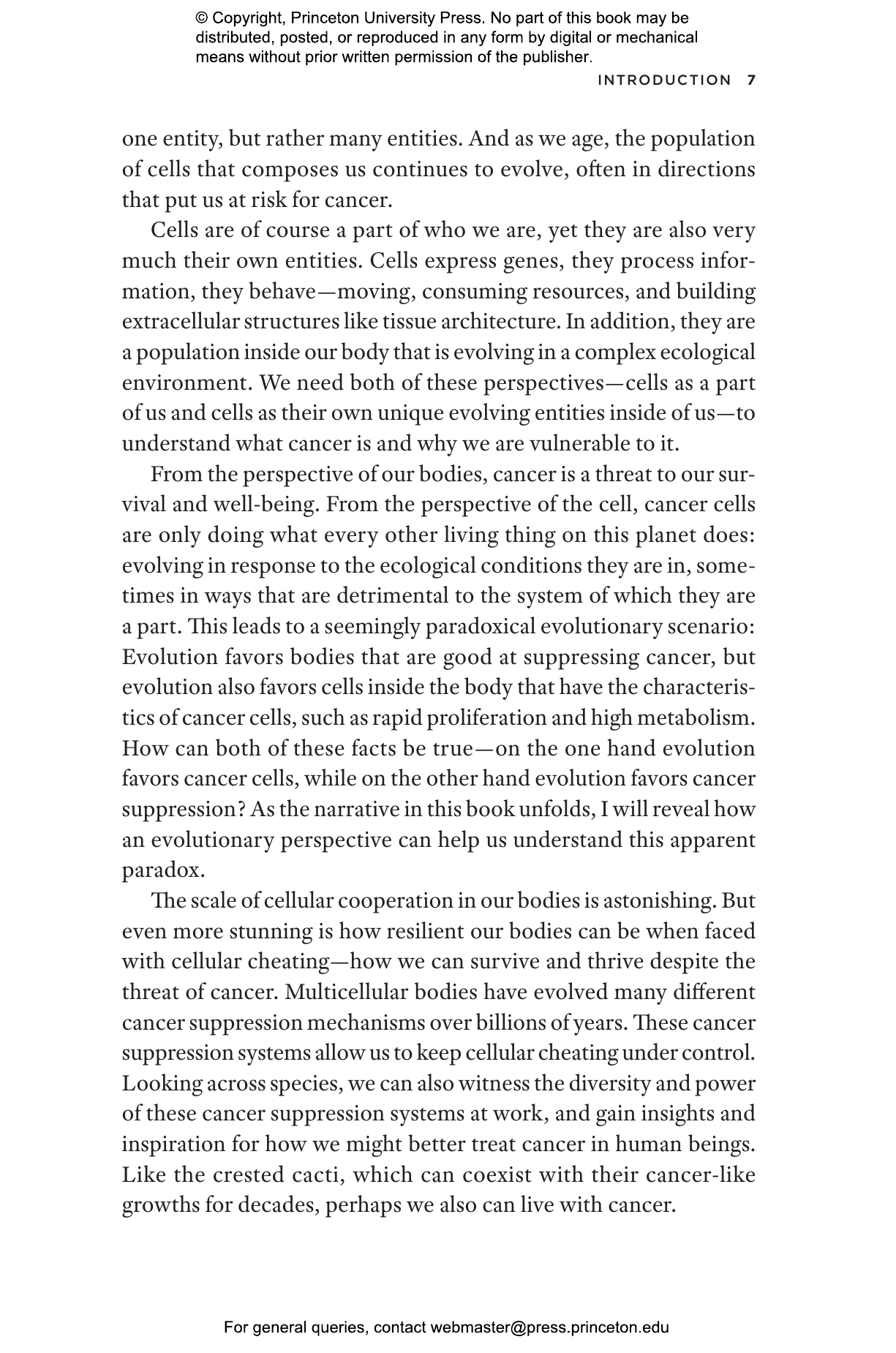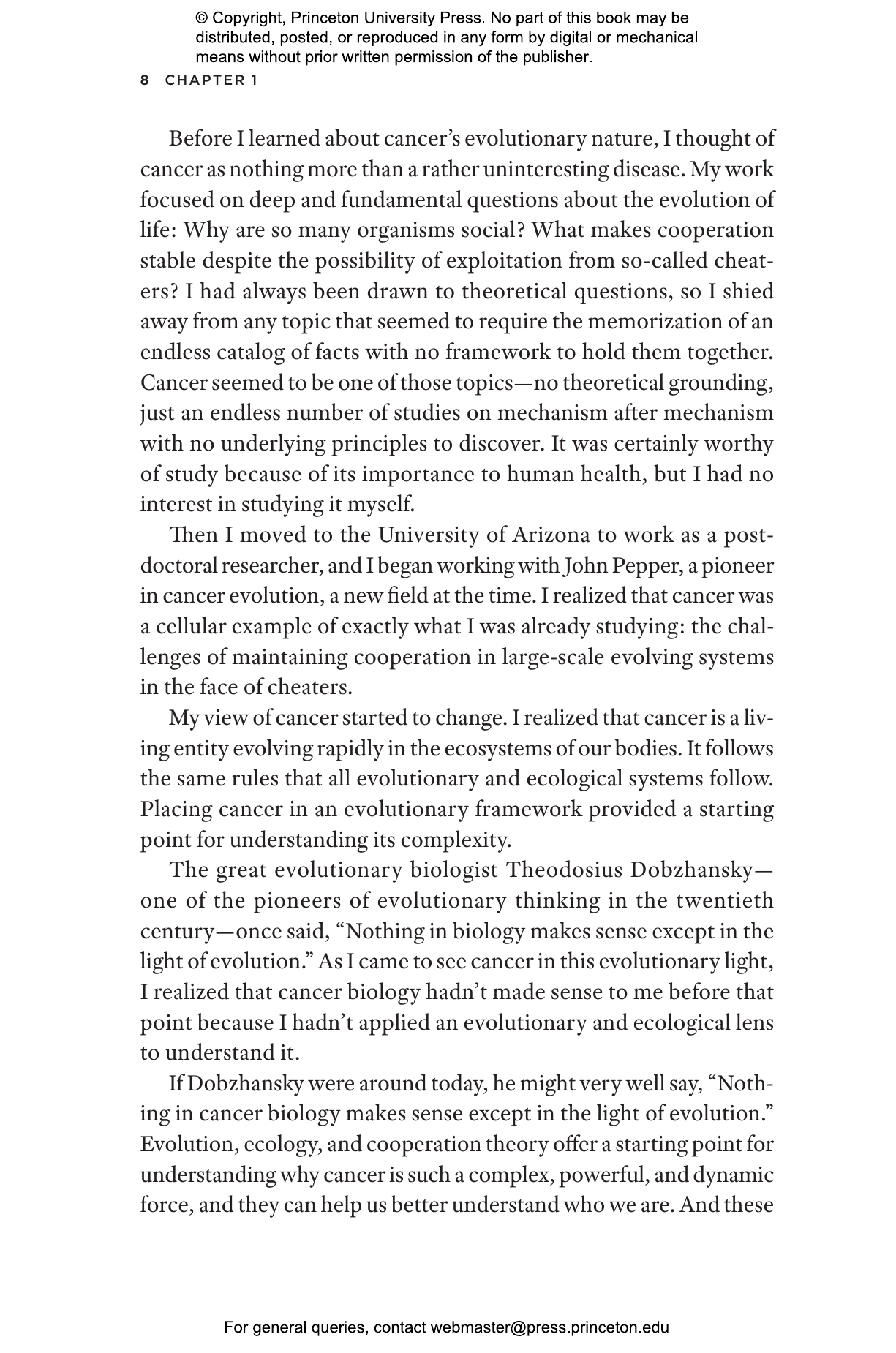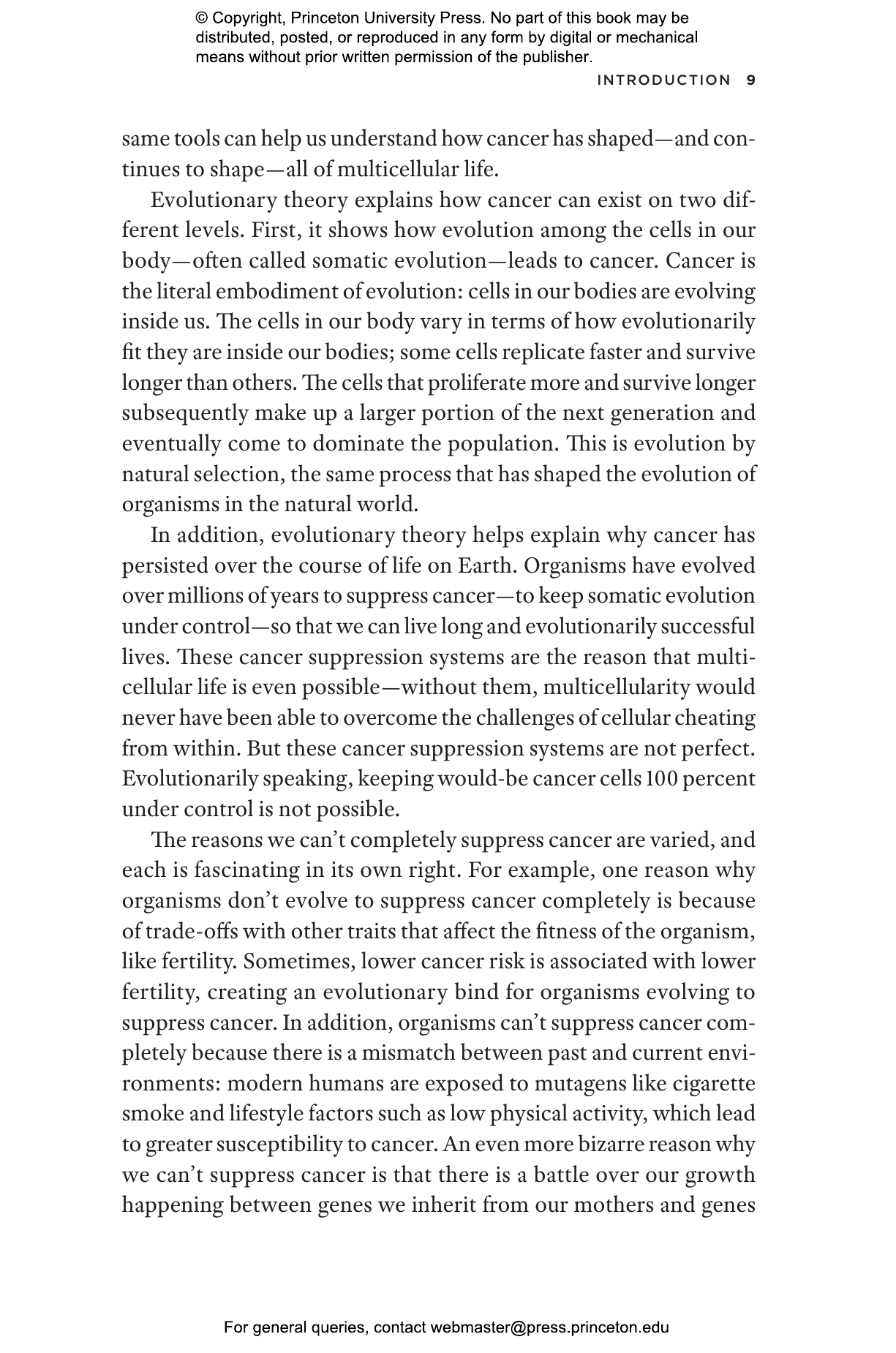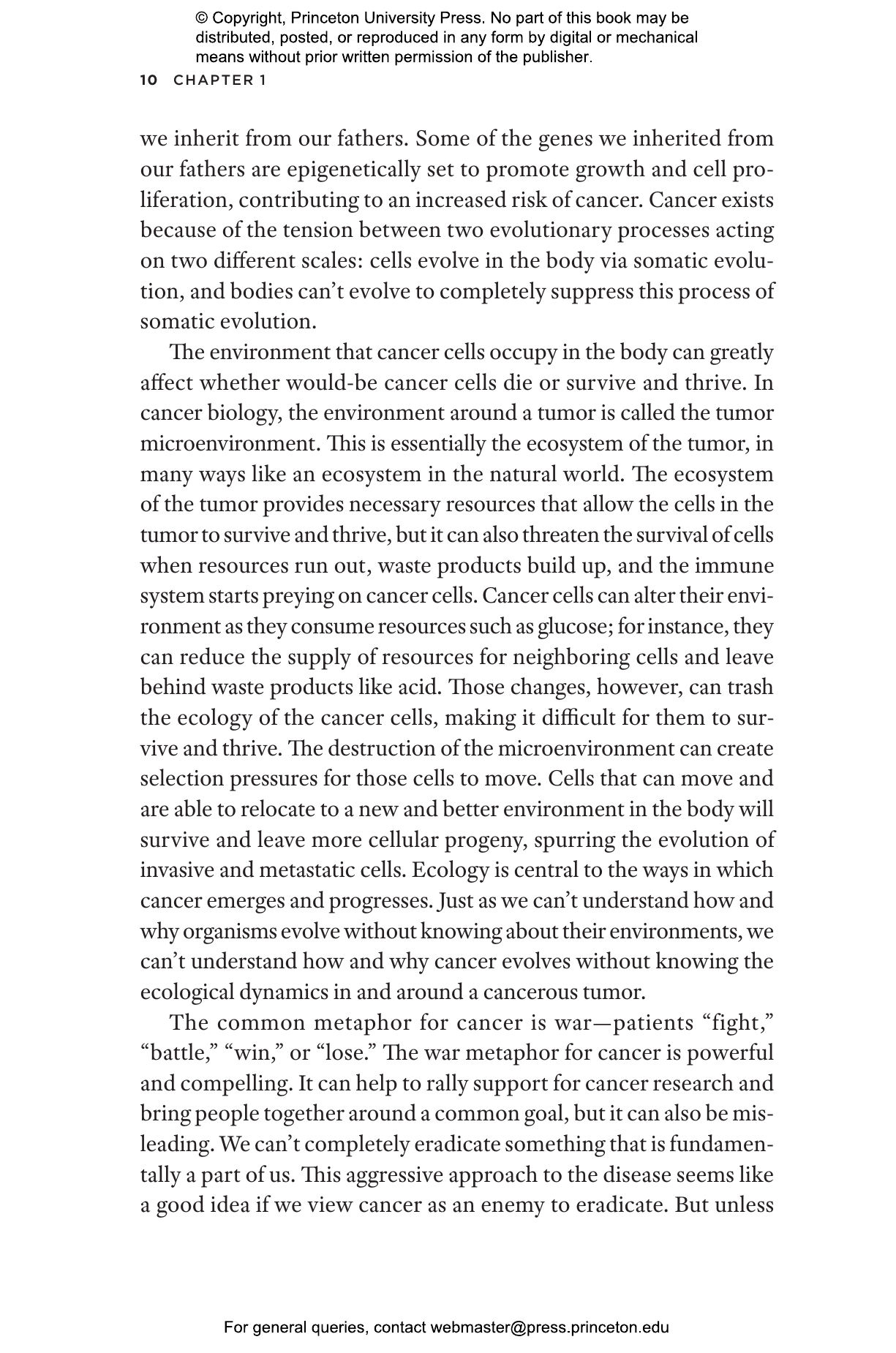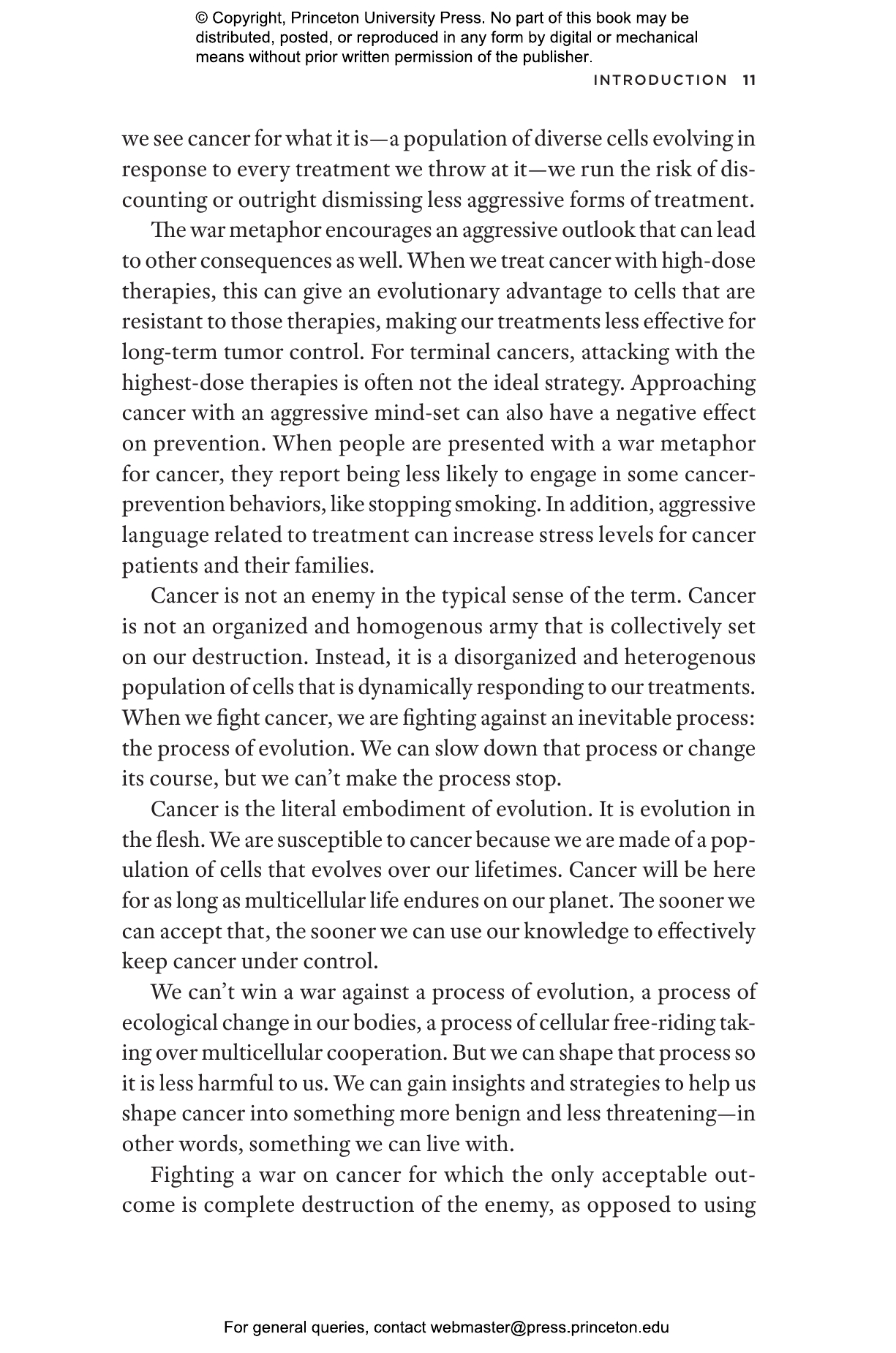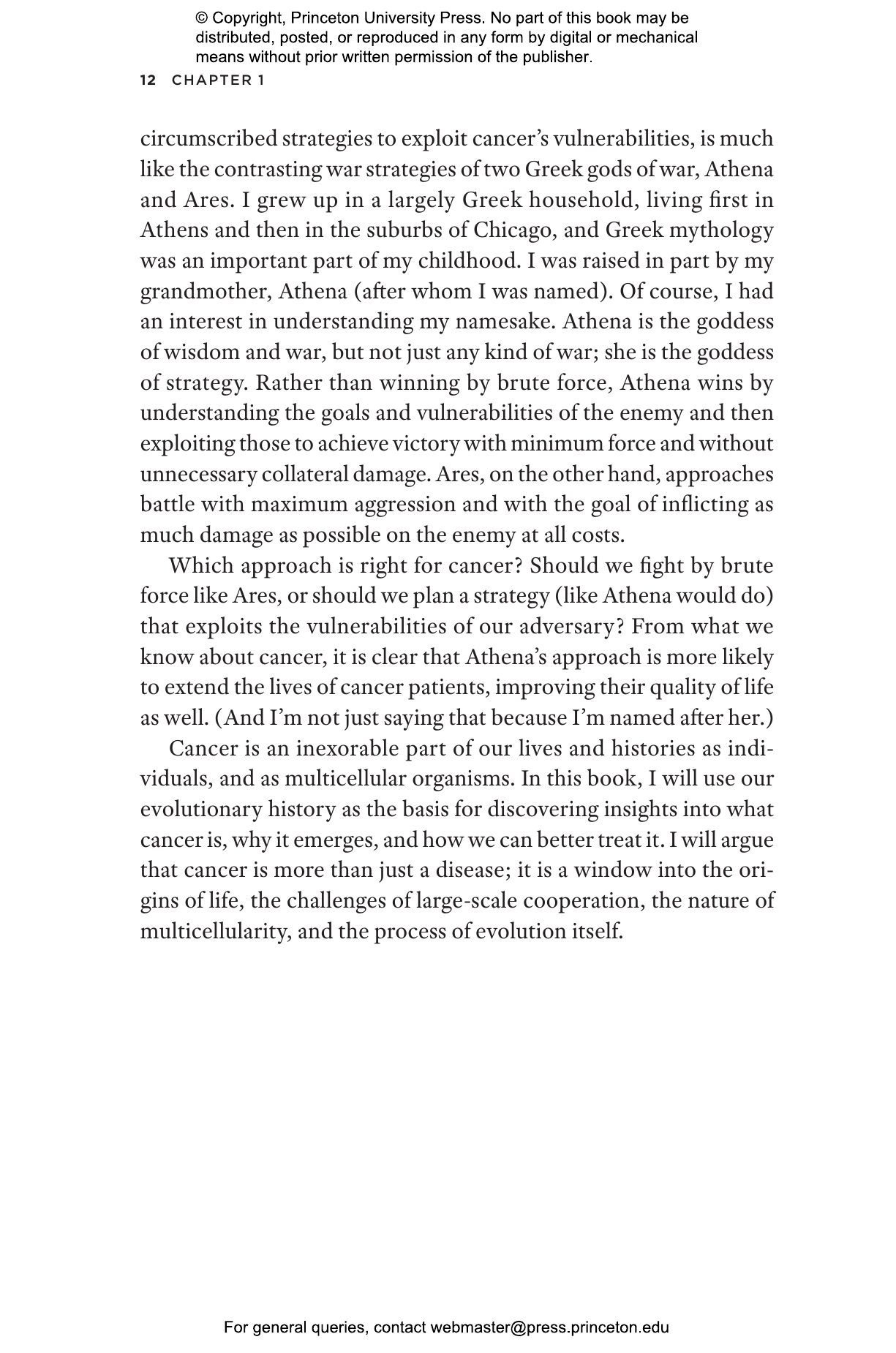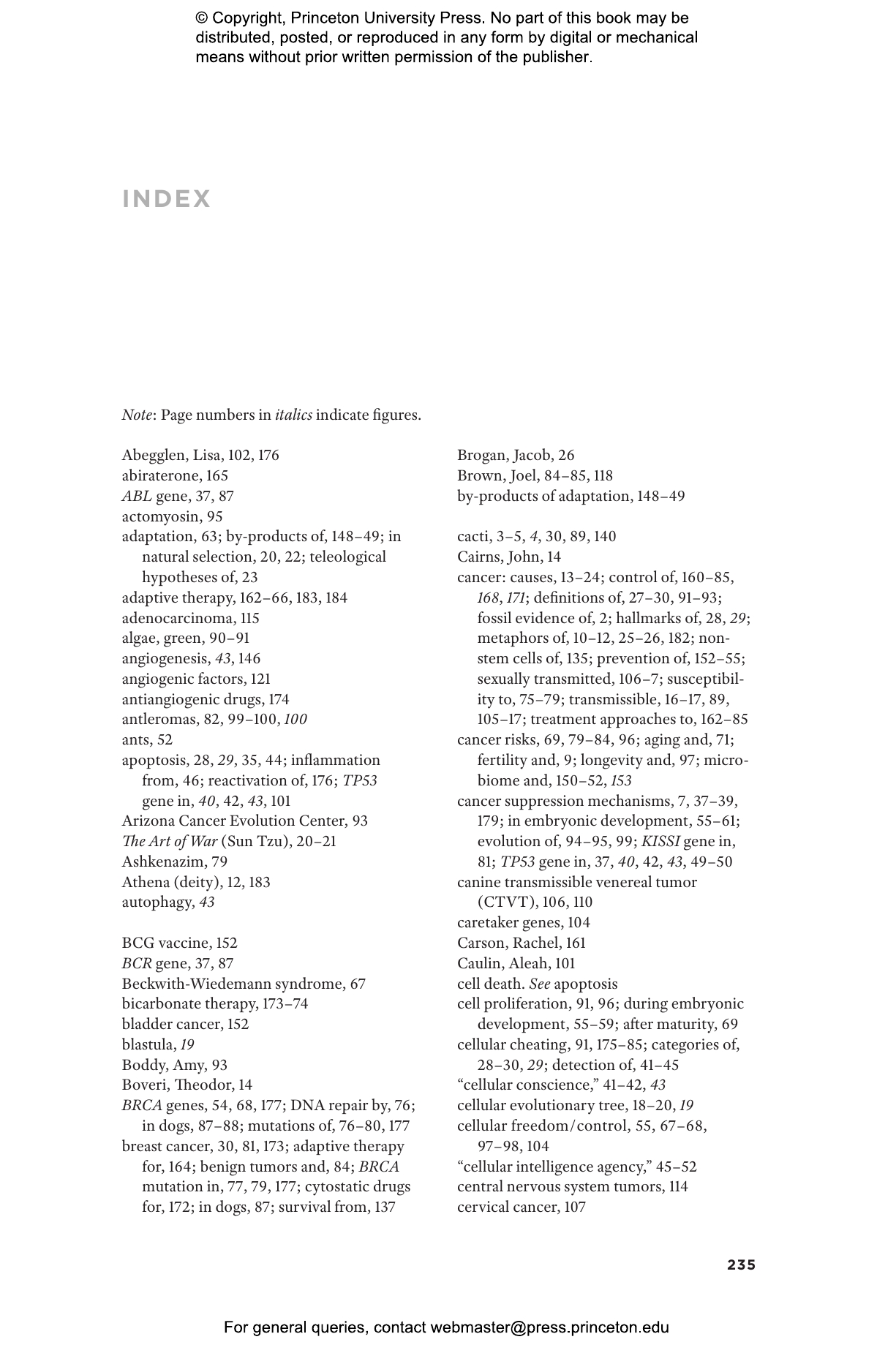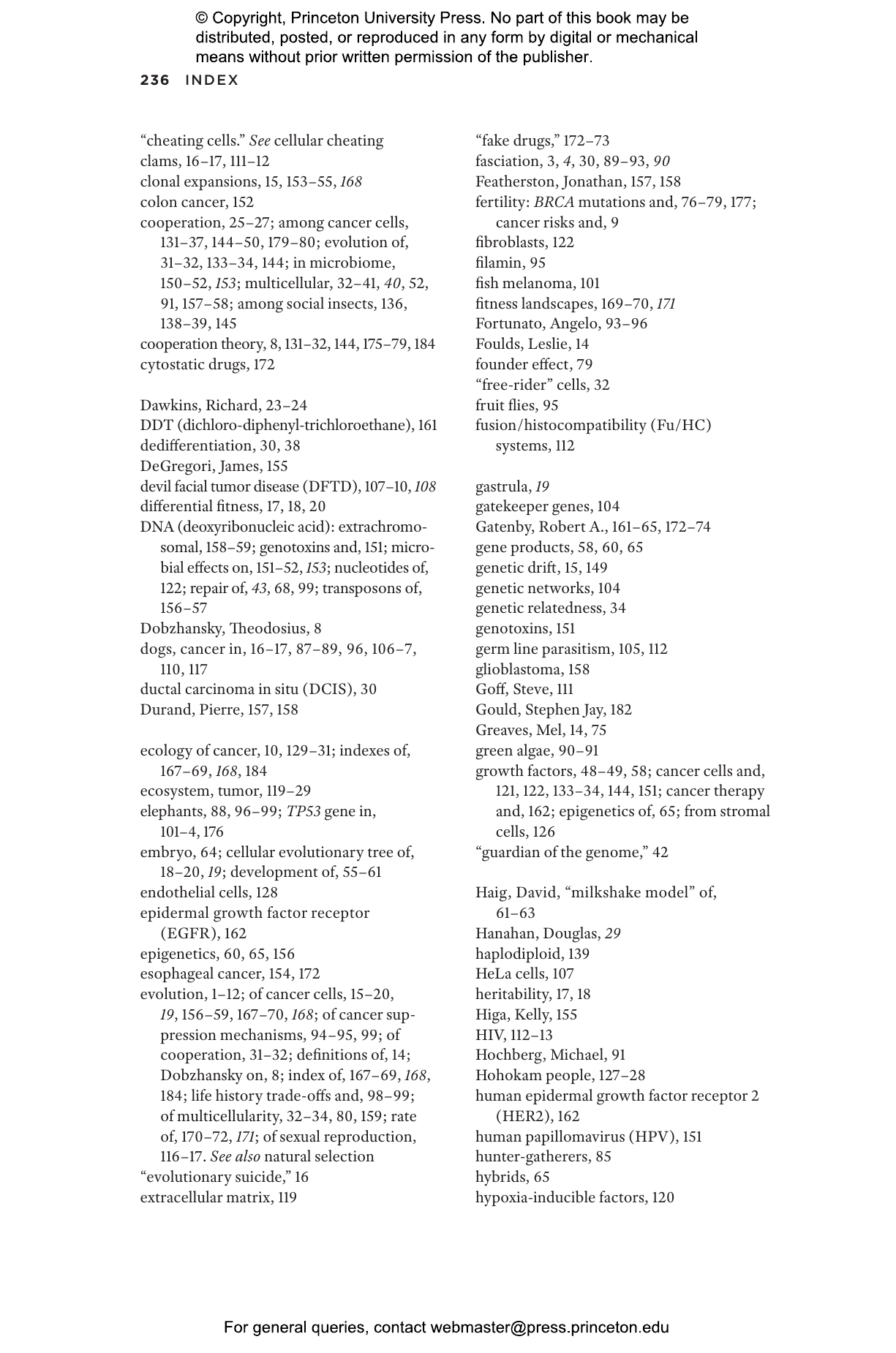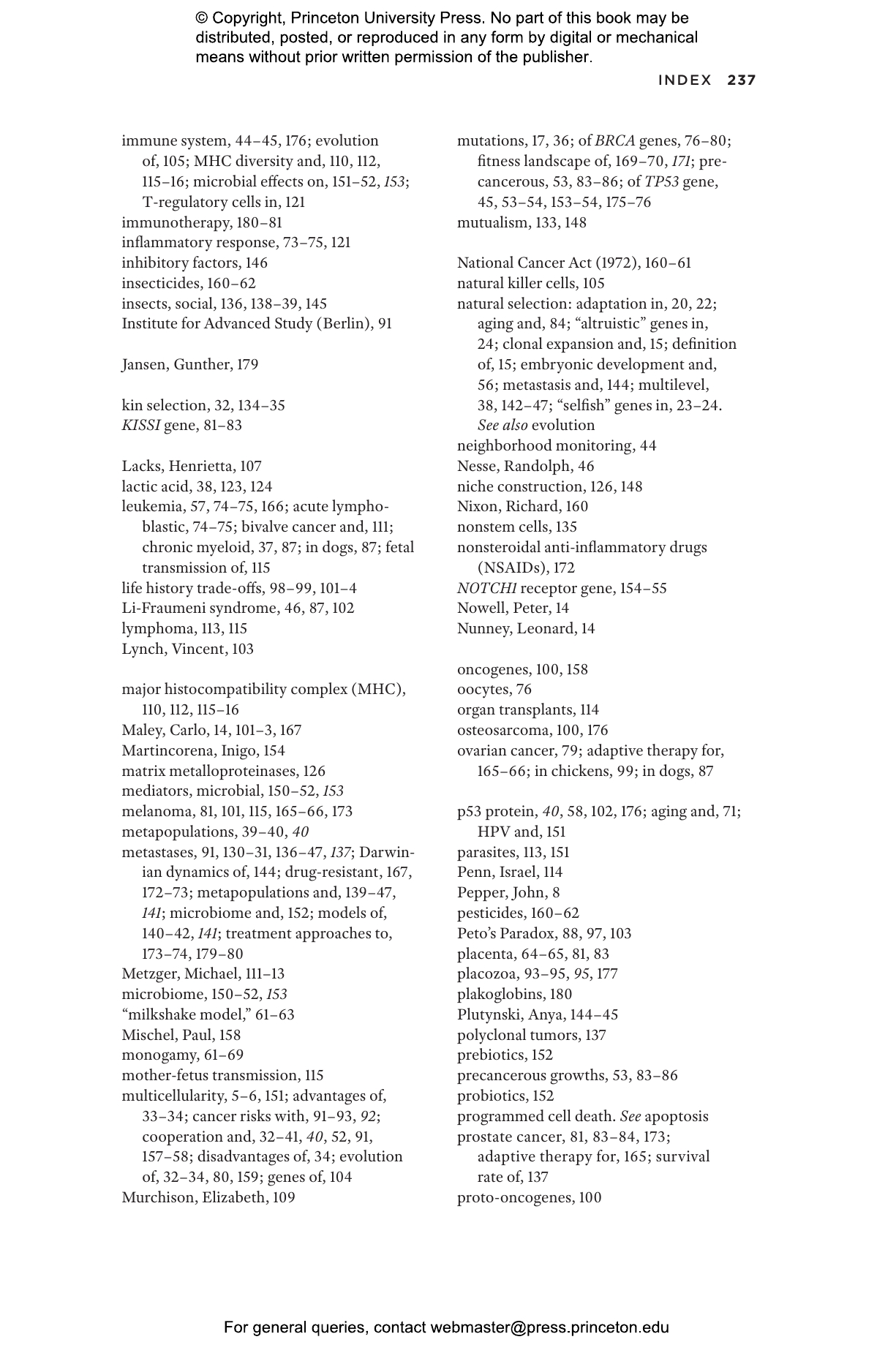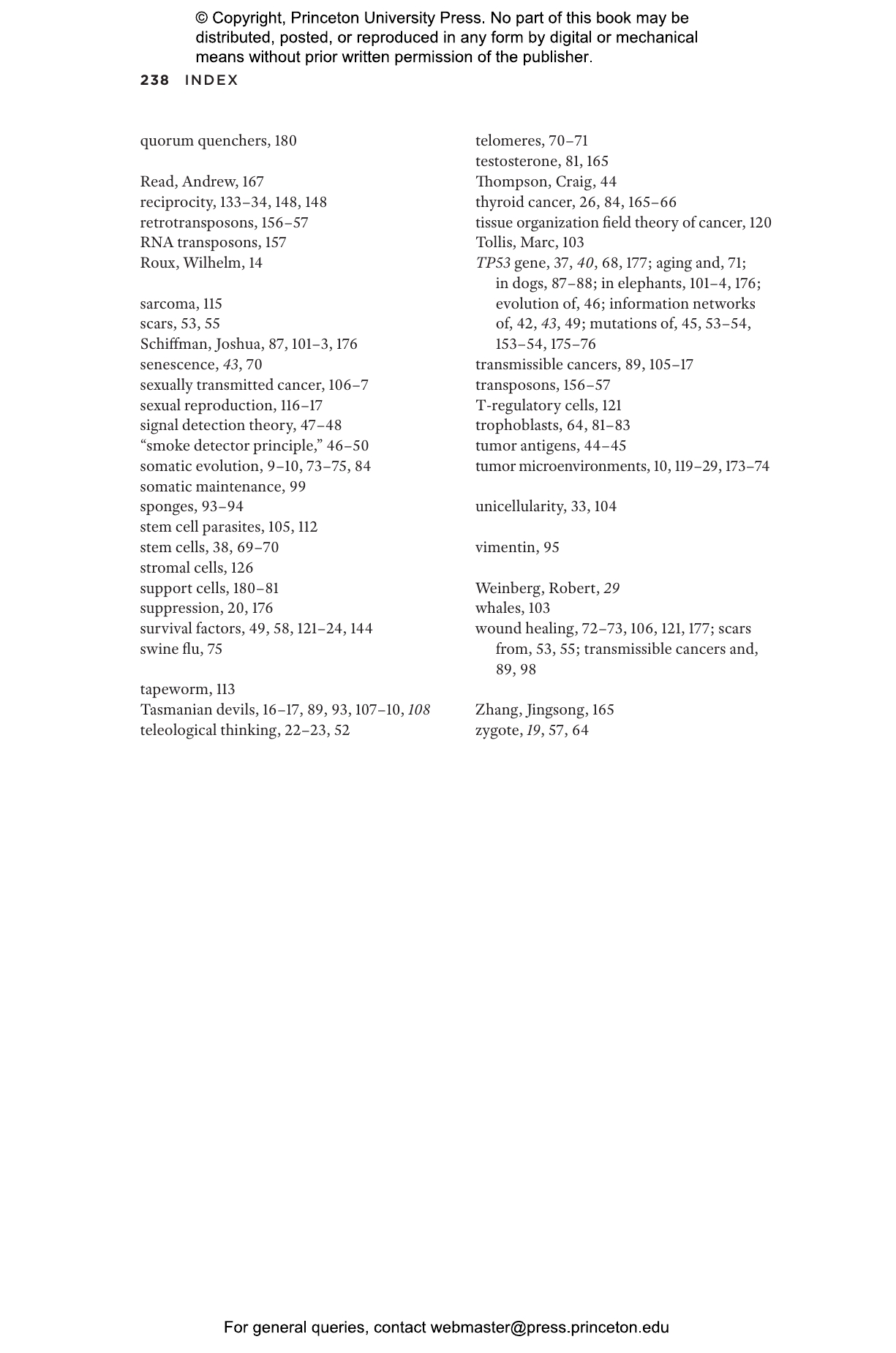When we think of the forces driving cancer, we don’t necessarily think of evolution. But evolution and cancer are closely linked because the historical processes that created life also created cancer. The Cheating Cell delves into this extraordinary relationship, and shows that by understanding cancer’s evolutionary origins, researchers can come up with more effective, revolutionary treatments.
Athena Aktipis goes back billions of years to explore when unicellular forms became multicellular organisms. Within these bodies of cooperating cells, cheating ones arose, overusing resources and replicating out of control, giving rise to cancer. Aktipis illustrates how evolution has paved the way for cancer’s ubiquity, and why it will exist as long as multicellular life does. Even so, she argues, this doesn’t mean we should give up on treating cancer—in fact, evolutionary approaches offer new and promising options for the disease’s prevention and treatments that aim at long-term management rather than simple eradication. Looking across species—from sponges and cacti to dogs and elephants—we are discovering new mechanisms of tumor suppression and the many ways that multicellular life-forms have evolved to keep cancer under control. By accepting that cancer is a part of our biological past, present, and future—and that we cannot win a war against evolution—treatments can become smarter, more strategic, and more humane.
Unifying the latest research from biology, ecology, medicine, and social science, The Cheating Cell challenges us to rethink cancer’s fundamental nature and our relationship to it.
"Aktipis takes an evolutionary approach to cancer, tracing the ways cells ‘cheat’ natural selection and showing how the human body evolved to outsmart many of those threats. She invites readers to put themselves in the role of a cancer cell and learn about the ways in which the disease and the history of human existence are intertangled."—Erin Blakemore, Washington Post
"Darwinian approach to evolution of cancer and cancer-resistance. Brilliant book, up there with Nesse & Williams."—Richard Dawkins on Twitter
"The Cheating Cell reads like a deep and personal hypothesis coming from a researcher who has spent over a decade studying the evolutionary foundations of cancer."—David C. S. Filice, Evolution
"The Cheating Cell makes for fascinating reading and forces a radical reconsideration of what cancer is and how we should deal with it."—Leon Vlieger, The Inquisitive Biologist
"A gem of outreach and science communication, the book takes the reader through an impressive amount of cancer research in a nontechnical and often illustrative way. . . . I recommend The Cheating Cell for its innovative approach, standing as a valuable contribution to the cross-fertilization of ideas from diverse domains of research, like social evolutionary theory and cancer research."—Simon Okholm, Metascience
"The Cheating Cell is a fascinating book on a subject that’s gaining the prominence it deserves: cancer as an evolutionary phenomenon. Athena Aktipis works in the heart of this field and she deftly illuminates the subject for both scientists and general readers. The implications—for cancer treatment and for the understanding of our existence as multicellular creatures—are huge.”—David Quammen, author of The Tangled Tree
"The Cheating Cell is an instant classic—a book that will transform how physicians and their patients understand cancer, how investigators develop therapies, and how we as a society can work together to reduce the global burden of this disease. Masterful, powerful, and absolutely essential reading for anyone who truly wants to understand the nature of cancer, The Cheating Cell is a tour de force."—Barbara Natterson-Horowitz, MD, coauthor of Zoobiquity
"This wise, erudite, and engaging book will change how we think about cancer and life itself. Brilliantly illuminating how cancer is a form of evolution gone awry within our bodies, Athena Aktipis shows that we need an evolutionary approach to not only fight the disease but also live with it."—Daniel E. Lieberman, author of The Story of the Human Body
"This insightful and long-overdue book views cancer as a disease that results from the evolutionary and ecological dynamics of all multicellular organisms, from birth to death. Athena Aktipis does a masterful job of capturing the many threads of evolution and evolutionary theory that promise to enable a fundamental understanding of cancer and portend a new era of innovative prevention and treatment strategies."—Anna D. Barker, Arizona State University and former deputy director of the National Cancer Institute
"Cancer is more than a source of dread and tragedy—it is entwined with the nature of life and the forces that shaped it. Athena Aktipis has thought deeply about evolution and cancer, and provides an engaging and insightful explanation of why we are cursed with this malady."—Steven Pinker, author of Enlightenment Now
"Trying to keep cheating cells at bay is a problem that connects humans, elephants, Tasmanian devils, and cacti alike. In The Cheating Cell, Athena Aktipis uses clear explanations and riveting examples to show how viewing cancer through an ecological and evolutionary lens allows us to better understand the disease, and can lead to more effective ways of lengthening lifespans in our ongoing battle with this most ancient of foes."—Kelly Weinersmith, coauthor of Soonish
"The one book to read for a true understanding of cancer and its control."—David Sloan Wilson, author of This View of Life
"The Cheating Cell turned my understanding of cancer on its head and you should read it."—Hank Green, New York Times bestselling author of An Absolutely Remarkable Thing and A Beautifully Foolish Endeavor
